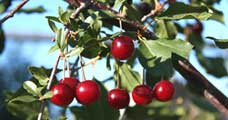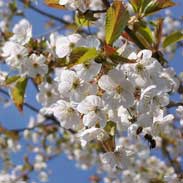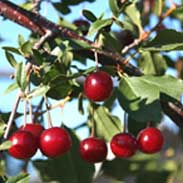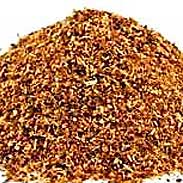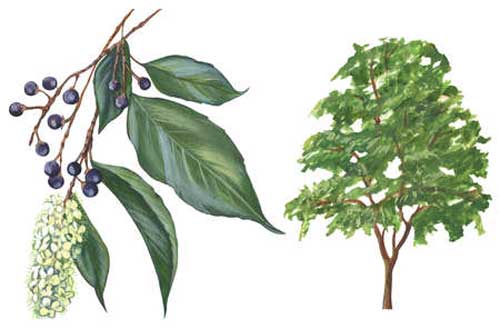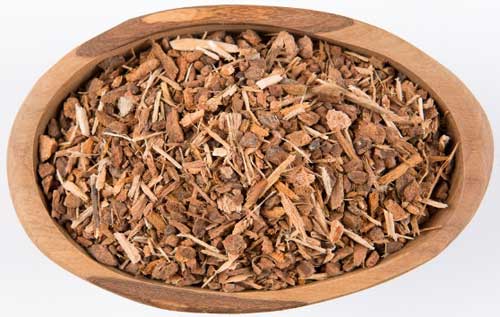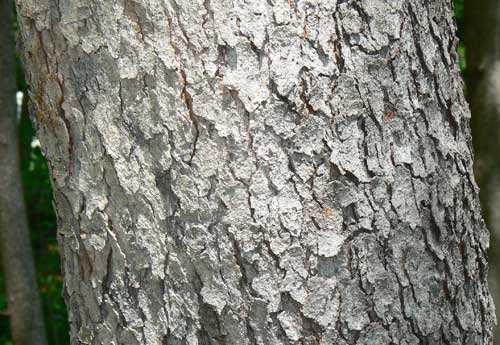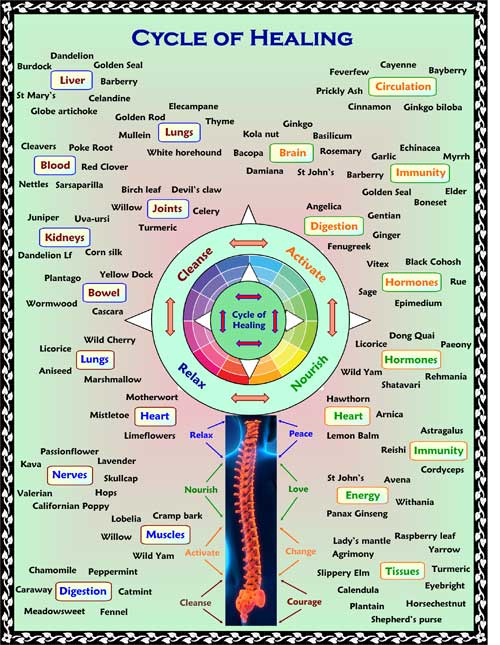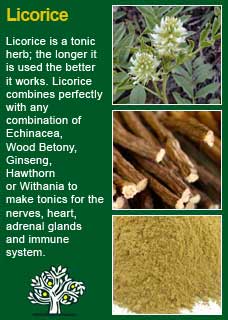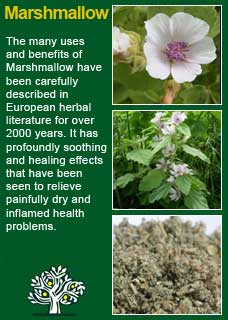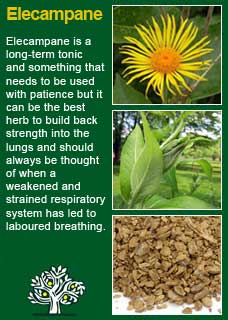
|
|
||||
| Our Pages ABOUT CONSTITUTIONAL MEDICINE
|
In herbal medicine we use the bark from this large species of cherry tree that can grow up to 30 meters tall. The taste and smell of Wild Cherry is distinctive and, to be effective, the raw material must be relatively fresh because it is a herb that is especially vulnerable to aging and losing its potency if it is not stored well, i.e. in air-tight containers out of the light.
Early colonists to America found Native Americans using Wild Cherry to relieve coughs but also as a general sedative and treatment for labour pain, diarrhoea and pain and soreness in the chest in general. They adopted the Native American uses for the herb but also widely used it to treat the bronchitis, whooping cough and pneumonia that plagued their communities. Wild Cherry was one of the most popular botanical medicines of the 19th century, both by itself and as an ingredient in numerous patent medicines. H Felter writes 'Wild Cherry is an excellent sedative and tonic, quieting irritation of the mucosa, the nerves, and lessening violent cardiac action dependent upon weakness. When a tonic and sedative is desired that will not unduly excite the circulation, Wild Cherry is a most useful drug. As such it may be used in atonic dyspepsia, and in convalescence from fevers and inflammations, especially after pleurisy, pneumonia, and influenza. While the syrup is an effectual and popular preparation, the cold infusion is better for these purposes. Wild cherry in syrup is an admirable sedative for cough, acting much like hydrocyanic acid and even better, besides it is more controllable. For the cough of phthisis (i.e. pulmonary tuberculosis or another such wasting disease of the lungs) it is one of the most satisfactory agents, and the syrup is in common use as a vehicle for other cough remedies. In phthisis it not only relieves irritation and cough, but it gives a certain amount of power, and restrains sweating and diarrhoea. Wild cherry is very efficient in uncomplicated palpitation of the heart, and where digitalis is required it lessens the irritative action of the latter upon the stomach. Wild cherry would be more valued if properly prepared. The cold infusion (sweetened, if desired) should be preferred; boiling temporarily destroys its value, and unless a good quality of bark, carefully preserved, is used, the syrup may have little value' F Ellingwood writes 'the tonic influence of Wild Cherry is more markedly apparent when it is administered in disease of the respiratory apparatus of a subacute or chronic character. It is not given during the active period of acute cases, but is of value during the period of convalescence. It is a common remedy in the treatment of chronic coughs, especially those accompanied with excessive expectoration. It is valuable in whooping-cough. The syrup is used as a menstruum for the administration of other remedies in this disease. It is excellent also in reflex cough—the cough of nervous patients without apparent cause. The syrup may be used persistently in phthisis, for the administration of many other agents which seem to be indicated during the course of the disease. Wild Cherry is popular in the treatment of mild cases of palpitation, especially those of a functional character, or from reflex causes. Palpitation from disturbed conditions of the stomach is directly relieved by it' King's Dispensatory writes 'Wild cherry bark has a tonic and stimulating influence on the digestive apparatus, and a simultaneous sedative action on the nervous system and circulation. It is, therefore, valuable in all those cases where it is desirable to give tone and strength to the system, without, at the same time, causing too great an action of the heart and blood vessels, as, during convalescence from pleurisy, pneumonia, acute hepatitis, and other inflammatory and febrile diseases. Its chief property is its power of relieving irritation of the mucous surfaces, making it an admirable remedy in many gastro-intestinal, pulmonic, and urinary troubles. It is useful in hectic fever, cough, diarrhoea, some forms of irritative dyspepsia, whooping-cough, irritability of the nervous system, etc' The British Herbal Pharmacopoeia (BHP) describes the actions of Wild Cherry as 'antitussive, mild sedative, astringent'. It says it is indicated for 'persistent cough, pertussis (whooping cough), nervous dyspepsia' and specifically indicated for 'irritable and persistent cough of bronchitis, pertussis, cough due to increased irritability of respiratory mucosa'. The BHP recommends a dose of 0.5-2 grams or by infusion or a dose of 2-4 mls of the tincture. Thomas Bartram writes that the actions of Wild Cherry include 'astringent, sedative, digestant, antitussive, antispasmodic, pectoral'. He suggests uses for it including 'hacking cough, whooping cough, asthma, bronchitis, croup, catarrh, irritable bowel syndrome and as a tonic in convalescence. Bartram recommends a tea from half a tsp of herb to a cup of boiled water, infuse for 15 minutes with a dose of half to one cup, or 1-2 mls of the liquid extract. In Chinese medicine, Wild Cherry is indicated where there is 'heart fire', consisting of such symptoms as palpitations, thirst, sores in the mouth and tongue, mental restlessness, agitation, feverishness, insomnia, rapid pulse, hot and dark urine and a swollen, yellow-coated tongue with a red tip.
Wild Cherry contains some potent ingredients called cyanogenic glycosides (prunasin) which is probably why it is the strongest natural cough reliever there is. In practice that means that Wild Cherry is mostly used for what is termed a ‘dry, unproductive cough’. Wild Cherry bark loses its potency if stored for more than a year and you must not heat Wild Cherry because the main ingredients that help soothe and reduce a cough, the cyanogenic glycosides, are easily damaged by heat. Most herbalists use it as a tincture because it is easy to take and stays potent for much longer. ~ The authors, titles and the 'where-and-when' published of over 50 further studies and articles on Wild Cherry are listed in a PDF found here
For some years now, against this proven and safe way of herbalism, there has been a rising tide of excessive caution and scare-mongering in many parts of the world. The same authorities that, not so long ago, decried herbal medicines as ineffectual, have now taken up a different adversarial position; that they are dangerous substances that should only be prescribed by Doctors, who of course have zero training in them. Unfortunately, the same unnecessary fear and worry has crept into many natural health websites and popular publications on herbs. Herbs that we have safely used for thousands of years, that have no reports of adverse reactions in the medical literature despite widespread use by millions of people, are suddenly described as contraindicated because of something that should have been seen as completely unimportant, or at the utmost a merely theoretical concern, such as a laboratory study on one of the herb's constituents to use an all too common example. I wonder sometimes if the writers of such articles feel that the herb will be more deserving of respect if it is thought to be a little bit dangerous, in other words more like a drug than something that has simply come out of the earth and been used by ordinary people for generations beyond count. There is just so much misinformation about herbal medicine on the internet now. Ludicrous claims and cautions abound in equal measure; it seems like one group are trying to make money out of the public whilst the other are busily trying to scare them off. I have to believe that the kind of reader who takes the time to read pages on herbs that are as extensive as this one is much less likely to be swayed by marketers or misinformers. I hope that you will keep your wits about you if you get conflicting opinions from people who have never really got to know these herbs, who have never worked with them, or learned how to use them safely and effectively. I want to remind you that the reason that herbs can never be patented and owned by any individual or corporation is because they are, and always will be, the People's medicine. They belong to all of us and it is my great hope in sharing this work that you will learn how to use them wisely for yourself, and the people you care for. Be safe, but do not be afraid.
Especially due to concerns about the potency of the dried bark if it is not fresh enough, I always use Wild Cherry as a tincture and rate it highly for its ability to help with horrible coughs. I've had many patients who have come in after weeks or even months of intensely irritating and unproductive coughs who find, to their great relief, that their formula, which contains a nice high dose of Wild Cherry, is able to help turn matters around remarkably quickly. That said, generally we are looking to encourage rather than suppress a cough in natural medicine because it is there for a reason and you need to help the body do what it is trying to do (in this case clear out debris or infection by coughing it out) rather than suppressing the process. The traditional recommendation with Wild Cherry is to use it when the cough is 'unproductive' and not to use it when there is obvious debris to clear. This is because Wild Cherry can significantly ease the cough reflex and we have to be very careful not to end up extending the problem longer by interfering with the lung's natural self-cleansing process... That said, there have been plenty of times that I've used Wild Cherry when the cough has not been completely dry or useless, but because the person is so exhausted by the process of trying to clear their lungs that they desperately need some respite. Coughs can be deeply debilitating because they can involve an enormous amount of effort. They mess with people's ability to rest and cause them to expend far too much energy for much too small a result. The ability to cough is vital, even life-saving, but it is a most blunt instrument and it can be set on full throttle by the tiniest of particles in the lungs. Likewise, often long after an infection has been resolved, there can still be a continual signal to the brain saying, “there’s something in here and you have to cough it out, no matter what the cost!’ It could be toxins left over by an infection, or waste products from the immune system that have been left on the battlefield, or damaged tissues in the lungs or bronchial tubes. It can even just be a state of hypersensitivity left over from the process of infection and inflammation. However, the cost of keeping coughing when it is no longer essential can, sometimes, be too high, and when the person gets exhausted by the coughing itself, they can become vulnerable to other, potentially even more serious problems. Wild Cherry has a place in many a situation where it is time to soothe and relieve a cough that has gone on too long. A huge part of the art of herbal medicine is getting the dose right and people vary as to how much they need. Therefore, I will often give a range of doses that can be used for a formula containing Wild Cherry. Once the person feels that they are responding it is best to stay with that dose rather than thinking a larger amount will necessarily work any better. Too much of anything is just as unhelpful as too little and herbs are powerful substances; not to be under-estimated! Here is an example of a cough formula using Wild Cherry that is meant to be taken for as long as needed:
Typical instructions would be to start taking 4 mls as often as needed up to 10 times a day (i.e. 40mls in total over a day). If the medicine helps but the effect is only short-lived, that's ok, take another dose. If the medicine did not make a clear and obvious difference within 20 minutes to half an hour after taking it, then the next step is to increase the dose. Go up to 6 mls each time (this can be taken up to 7 times a day, i.e. a maximum of 42mls in a day. In rare instances, we might need to take a full 8 mls at a time of the above formula, (which would give 4 mls of Wild Cherry in a single dose, which is what I would say would be about the safe maximum). This can be repeated up to 5 times a day if needed, again to make a total of 40mls a day over a short time frame. If the cough and the breathing is much relieved by smaller doses then stay at that level and don't think that more will be better, it rarely is, paradoxically it often works less well! The key point is that when the person feels their cough easing and their breathing coming easier, they are best to stay with the dose that works and wait until they feel they need some more before taking the next dose. The best way to take Wild Cherry is to drip it in with small amounts. The patient will typically need to dose quite frequently at first, but then things usually start to rapidly improve. You measure treatment lengths in days with this herb, not weeks. I have also used Wild Cherry in combination with Hawthorn & Motherwort for disturbances of heart rhythms. Here I find that around 1-2 mls of Wild Cherry, usually twice or three times a day, has been of much help in settling an agitated, irregular heart and in giving considerable comfort to the patient's nerves and general well-being. Wild Cherry combines perfectly with Licorice root and Marshmallow for dry and sore lungs and with Elecampane and Mullein for a weakened or congested respiratory system.
Much of the information here about the traditional uses of Wild Cherry is consistent with the model of thinking whereby one may treat problem A with herb B. There is value in this approach in how it helps us pass on useful knowledge to one another but where it falls short is that people are not all cut from the same cloth! Wild Cherry might work brilliantly for one person but less well for another -- why is this? Part of the reason is that people vary in their constitutions as to whether they are either hotter or cooler and, at the same time, either dryer or damper. This useful and rather fascinating subject is introduced further here Another big part of using the right herb when it is most needed comes from understanding the need to treat what is going wrong for the person that had led up to their getting a health condition. In this light, Wild Cherry can particularly offer its benefits when a relaxing action is needed in the 'cycle of healing', more about this here
Please understand that I cannot advise you, including on products or dosage, without seeing you in person in my clinic but for ideas
on how you might find a good herbalist in your area read here |
|
|
|
© 2011 R.J.Whelan Ltd
